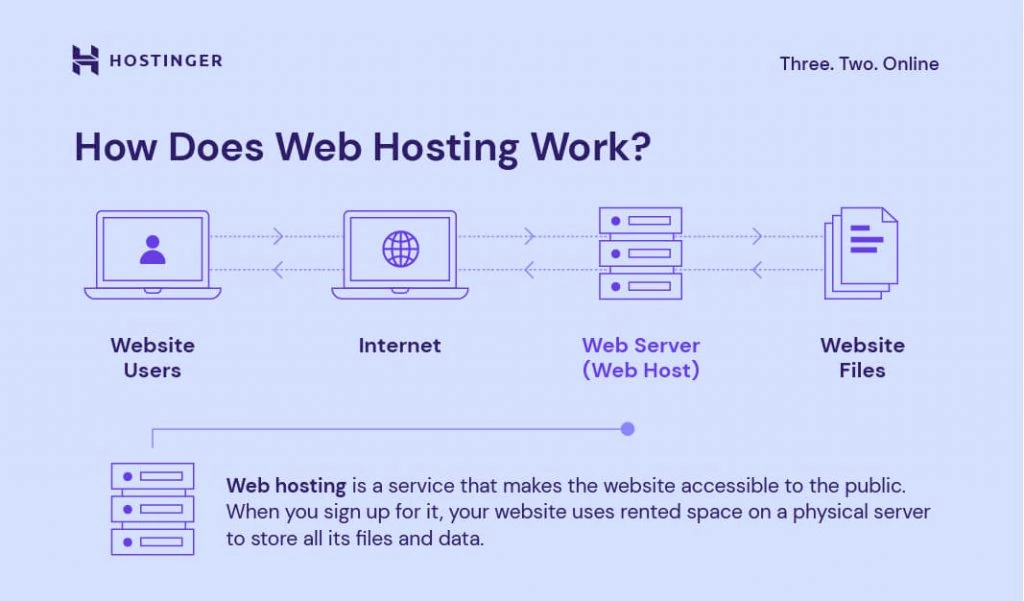Top 10 Best Web Hosting Services for Bloggers and Small Businesses
Top 10 Best Web Hosting Services for Bloggers and Small Businesses
Blog Article
Discovering Different Sorts Of Internet Hosting Provider for Diverse Site Demands
Various alternatives, such as shared hosting, VPS, dedicated servers, and cloud options, cater to a spectrum of demands from personal blog sites to complicated business applications. Each holding kind presents distinct benefits and limitations that can substantially affect scalability, cost-effectiveness, and performance.
Shared Holding Summary
Shared hosting is a prominent host solution that permits several internet sites to live on a solitary web server, sharing its sources such as bandwidth and storage. This sort of hosting is especially appealing to people and little companies as a result of its cost-effectiveness. By merging resources, users can profit from reduced costs compared to dedicated organizing remedies where a single server is assigned to just one site.
In a shared hosting environment, the server's resources are separated among different users, which means that heavy traffic on one site may influence the efficiency of others. Many shared hosting companies execute measures to handle resource allowance successfully. This service commonly includes features such as email accounts, web-based file administration, and one-click application setups, making it user-friendly for those with restricted technological knowledge.
Shared holding is perfect for personal blog sites, local business web sites, and profiles that do not anticipate high degrees of web traffic. It is important to pick a credible hosting copyright to guarantee dependable uptime and adequate customer support. While shared hosting is a sensible starting factor, users ought to check their web site's growth and efficiency to determine if an upgrade to a more robust organizing solution may become necessary.
VPS Hosting Explained
VPS organizing, or Virtual Private Web server organizing, offers a substantial upgrade from shared hosting by providing individuals with dedicated resources on a virtualized web server. This model efficiently separates each customer's setting, allowing for better efficiency, modification, and control. Unlike shared organizing, where sources are distributed among numerous individuals, VPS hosting allocates a details amount of CPU, RAM, and storage space to each web server, guaranteeing that performance is not prevented by neighboring accounts.
VPS organizing is especially advantageous for businesses and sites that experience changing traffic, as it can accommodate development without the demand for a full overhaul of the organizing infrastructure. Customers can mount customized software, set up web server setups, and take care of safety and security procedures tailored to their details demands.
Furthermore, VPS organizing strikes a balance between price and performance - 10 Best Web Hosting Services. While it is normally a lot more expensive than common hosting, it is significantly a lot more inexpensive than committed servers, making it an excellent selection for medium-sized enterprises or developers seeking trusted performance without excessive expense. On the whole, VPS holding serves as a robust option for those calling for improved dependability, protection, and scalability for their online ventures
Dedicated Server Benefits
When considering the requirements of a growing business, choosing for a specialized web server can significantly elevate performance and control. Committed web servers provide an exclusive setting customized to the specific requirements of a company, guaranteeing optimum resource appropriation without the disturbance of neighboring web sites. This seclusion not just boosts rate and integrity however additionally enables regular efficiency, specifically under high website traffic conditions.
One more key advantage of committed organizing is the level of customization it offers. Services can configure their servers to satisfy distinct specifications, choosing the os, hardware, and software application that best align with their functional demands. This versatility cultivates boosted protection steps, as organizations can apply customized security procedures and firewall software setups to secure delicate information.

Cloud Hosting Attributes
Cloud hosting deals a scalable and versatile option that enhances the devoted server environment, accommodating organizations that need dynamic resource appropriation and high schedule. One of the key attributes of cloud organizing is its on-demand source provisioning, permitting companies to scale their resources up or down based upon real-time demands. This flexibility guarantees that web sites can take care of differing website traffic loads without efficiency degradation.
Another considerable advantage is the redundancy and integrity supplied by cloud style - 10 Best Web Hosting Services. Data is stored throughout multiple servers, making certain that if one server fails, others can effortlessly take control of, lessening downtime and improving user experience. In addition, cloud hosting commonly includes automated backups, which safeguard data and help with recovery in situation of unforeseen incidents
Cost performance is another remarkable attribute, as companies only pay for the sources they utilize, preventing the costs connected with underused devoted web servers. In addition, cloud hosting typically comes with look at this site sophisticated safety and security procedures, including encryption and firewall softwares, to secure sensitive information from cyber threats.
Picking the Right Option
Choosing the suitable webhosting choice needs a cautious analysis of different factors that straighten with a business's specific needs and goals. Key factors to consider consist of the type of website being hosted, anticipated web traffic levels, and budget plan restraints. Small companies with restricted web traffic might find common organizing enough, while larger enterprises or e-commerce sites may call for devoted or cloud holding for boosted performance and safety.
In addition, the technological expertise of the group is vital. Customers with minimal technological expertise could gain from taken care of hosting solutions, which use support and maintenance. On the other hand, tech-savvy groups might prefer VPS or dedicated servers, enabling better modification and control.

Final Thought
Shared hosting offers well for low-traffic sites, while VPS organizing accommodates medium-sized business with its personalized resources. Committed servers offer ideal performance for high-demand applications, and cloud holding offers unmatched flexibility.
Shared holding is a prominent internet holding solution that allows multiple websites to live on a solitary web server, sharing its resources such news as data transfer and storage. While shared holding is a sensible starting point, users should monitor their website's growth and performance to identify if an upgrade to a more robust holding remedy may at some point be needed.
VPS hosting, or Virtual Private Server holding, uses a considerable upgrade from shared hosting by giving customers with specialized resources on a virtualized server. Unlike shared hosting, where resources are distributed among several users, VPS holding allocates a details amount of CPU, RAM, and storage to each server, ensuring that efficiency is not impeded by neighboring accounts.
Little organizations with minimal web traffic may discover common holding enough, while larger enterprises or e-commerce sites might call for committed or cloud holding for enhanced efficiency and security.
Report this page